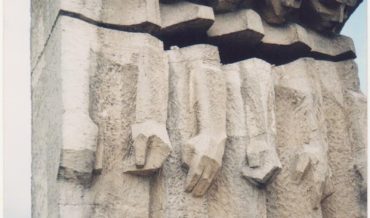Rakowicki cemetery was established in 1802 in Rakowice, then a village outside Krakow, now almost its downtown. It is still the biggest cemetery in Krakow. The first person to be buried there was the citizen of Krakow Apolonia Bursikowa. Many important for Krakow people were buried there later: Józef Dietl, Ignacy Daszyński, Jan Matejko, Juliusz and Wojciech Kossak, Helena Modrzejewska, Oskar Kolberg, Lucjan Rydel, Tadeusz Kantor and many others.
On the territory of cemetery you can find separated sectors with graves of the victims of revolutions of 1846 and 1848, fighters of November and January rebellions, Polish, Hungarian, Austrian and Czech soldiers killed during the I World War, victims of Dąbie massacre of 1945.
The huge part of the cemetery is military cemetery, where you can find graves of 1573 Soviet soldiers, 517 British soldiers, 177 Polish soldiers killed in September 1939, veterans of partisan movement, German soldiers.
